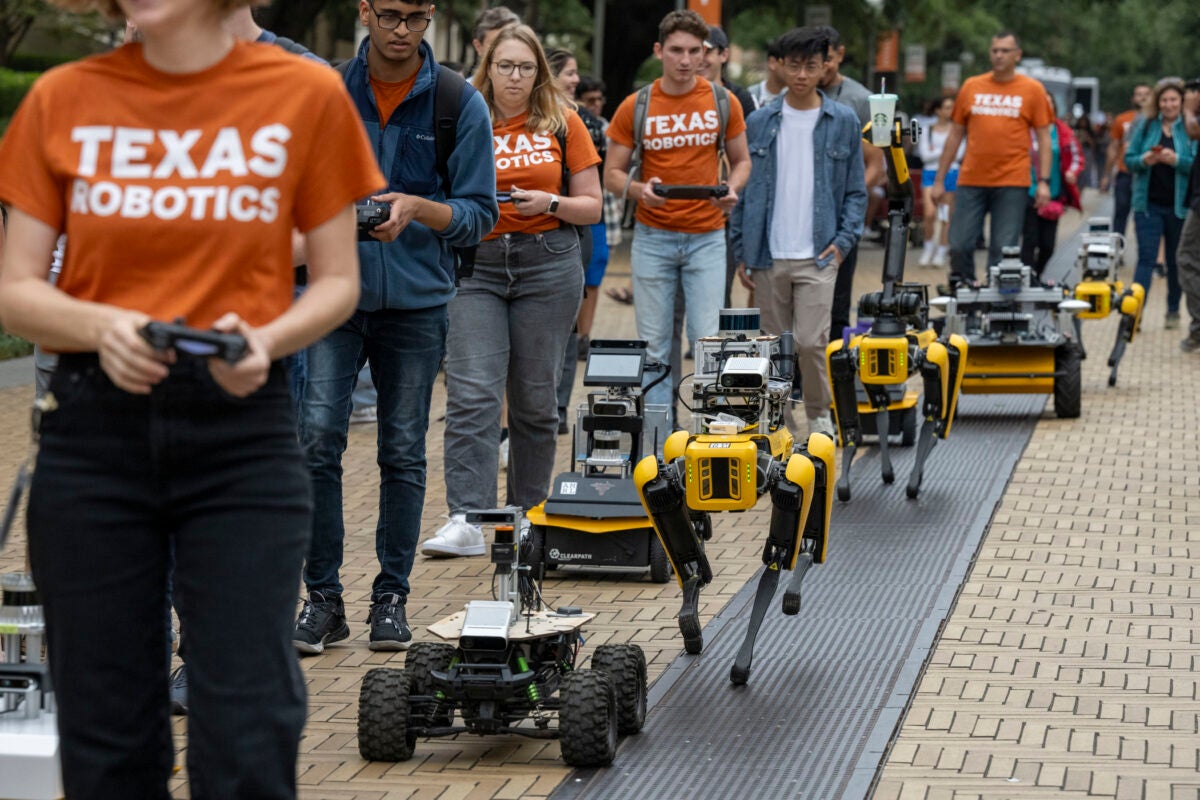Freshmen Fight Cyber Attacks and Other Societal Threats
College freshmen involved in UT Austin's Freshman Research Initiative work in labs on the real-world problem of System Security.

Students at The University of Texas at Austin are learning ways to fight cyber crime where these threats increasingly take place: phones, cars and other devices in the "Internet of Things."
In a new Freshman Research Initiative (FRI) course – the first research stream of its kind that represents a collaboration between UT Austin's College of Natural Sciences and the Cockrell School of Engineering – college freshmen work in labs on the real-world problem of System Security. As in all FRI courses, the students team with pioneering faculty and research educators in conducting cutting-edge research. In this case, hands-on experiments help students learn the tools and techniques vital to a modern cyber-defense system.
Currently, companies spend millions of dollars on cyber security, but according to the Global State of Information Security Survey, more than 42 million cyber security issues occurred last year alone. Securing computer systems in an increasingly exposed and inter-connected environment requires understanding core security principles and concepts from the perspectives of both the attacker and the defender—something freshmen in the course learn to do.
The students' work fits into a larger national movement to advance cyber safety in our national defense system. Last month, for example, President Obama urged action in the wake of high-profile computer hacks against groups such as Target, JPMorgan Chase, Anthem, and Sony Pictures Entertainment. Legislation pertaining to cyber defense is pending in Congress.
Systems Security is one of three new Freshmen Research Initiative offerings:
- Hijacking Microbial Factories for Synthetic Biology is a new research stream that looks at ways to reprogram bacteria so that they perform functions beneficial to society. One such example, shared at SXSW Create in 2014, is "Caffeinated Coli," bacteria that could calculate the caffeine content in coffee and other beverages.
- Microorganisms in Honey Bees and Other Insects is a "micro" research stream, wherein a handful of students explore tiny microbiota in the guts of insects. Knowing how these bacteria affect the functioning of ecologically important pollinators like bees could help scientists understand how to promote the health of species that are vital to human survival on the planet.




